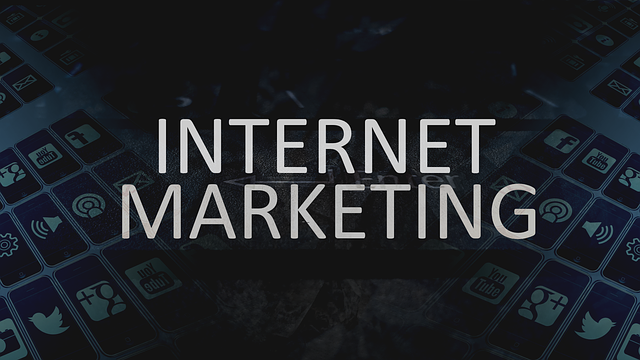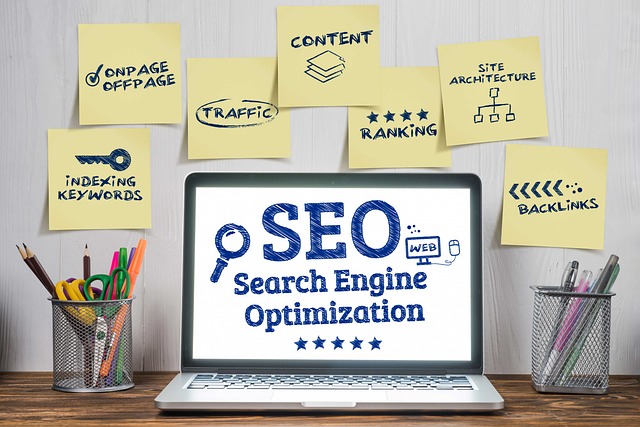Digital marketing encompasses a comprehensive strategy to enhance brand visibility and engage target audiences online. Full-service agencies provide strategic consulting, leveraging SEO, social media, content creation, and analytics to drive ROI. Strategic planning, tailored to unique brand value propositions, goals, and market trends, ensures impactful campaigns. With continuous learning, adaptation to technology, and data analysis, businesses can stay competitive in the digital age. Measuring ROI through key performance indicators and customer behavior insights optimizes strategies for sustained growth. Future trends include AI/ML personalization, AR/VR experiences, and ethical data practices, revolutionizing the digital marketing landscape.
“Uncover the power of full-service digital marketing—a comprehensive, strategic approach revolutionizing business growth. This article serves as your guide through the intricate landscape of modern marketing. From strategic planning to key components and benefits, we demystify successful campaigns. Learn how to overcome challenges and measure ROI effectively. Additionally, explore emerging trends shaping the industry. By understanding full-service digital marketing, businesses can harness its potential to stay competitive in today’s digital era.”
Understanding Full-Service Digital Marketing: A Comprehensive Overview

Full-service digital marketing encompasses a wide range of strategies and services designed to elevate your brand’s online presence. It goes beyond basic advertising by integrating various components such as search engine optimization (SEO), social media management, content creation, email campaigns, and web design. This holistic approach ensures that every aspect of your digital footprint is optimized to attract, engage, and convert target audiences.
A comprehensive full-service digital marketing strategy starts with understanding your brand’s unique value proposition and defining clear goals. It then involves creating compelling content tailored to different platforms and audiences. By leveraging data analytics and continuous optimization, these campaigns can be refined over time to maximize return on investment (ROI). The ultimate goal is to build a strong, consistent online presence that fosters meaningful connections with customers, ultimately driving business growth and success in the digital age.
The Role of Strategic Planning in Digital Marketing Success

Strategic planning is the cornerstone upon which successful digital marketing efforts are built. It involves a thorough understanding of a brand’s target audience, market trends, and competitive landscape, enabling marketers to create tailored strategies that resonate with consumers. By defining clear goals, identifying the right channels, and allocating resources effectively, businesses can ensure their digital marketing campaigns are not just impactful but also yield measurable results.
A well-executed strategic planning process helps in aligning digital marketing activities with broader business objectives. This includes establishing key performance indicators (KPIs) to track progress, anticipating consumer behavior shifts, and staying agile enough to adapt strategies based on real-time data insights. Such proactive planning not only enhances the effectiveness of Digital Marketing but also optimizes return on investment, ultimately driving business growth and profitability.
Key Components of a Successful Full-Service Digital Marketing Agency

A full-service digital marketing agency offers a comprehensive suite of services designed to elevate your brand and achieve business goals online. At its core, such an agency should provide strategic consulting, crafting tailored plans that align with your unique objectives. This involves market research and analysis to understand your target audience, competitors, and industry trends.
Effective execution is key, encompassing various digital marketing channels like search engine optimization (SEO) for improved visibility, social media management to engage audiences, email campaigns for targeted communication, content creation to captivate and inform, and paid advertising for rapid results. A successful agency also emphasizes data-driven decision-making, leveraging analytics to track performance, optimize strategies, and ensure a robust return on investment.
Benefits of Working with a Full-Service Digital Marketing Provider

Working with a full-service digital marketing provider offers businesses a comprehensive and strategic approach to their online presence. These providers act as a one-stop shop, handling all aspects of your digital marketing needs. This includes everything from creative content development and social media management to search engine optimization (SEO) and analytics tracking. By delegating these tasks, businesses can save time and resources while gaining access to a team of experts with diverse skill sets.
One of the key benefits is the ability to create cohesive campaigns across multiple platforms. A full-service provider ensures that your messaging and branding remain consistent, building a strong and recognizable brand identity. Furthermore, their specialized knowledge in SEO strategies can significantly improve online visibility, driving more traffic to your website and ultimately leading to increased sales and revenue. This holistic approach allows businesses to stay ahead of the curve in the fast-paced digital landscape.
Common Challenges and How to Overcome Them in Full-Service Digital Marketing

In the dynamic landscape of digital marketing, businesses often face several common challenges that can hinder their online growth. One significant hurdle is keeping up with ever-evolving technologies and algorithms. Digital Marketing demands a constant adaptation to new trends, from social media platform updates to search engine optimization (SEO) changes. Staying ahead requires dedicated research and a proactive approach to learning. Marketers must embrace continuous education and stay informed about industry news to make effective strategies.
Another challenge is data management and analysis. With vast amounts of consumer data available, organizing and interpreting it can be daunting. Overcoming this involves implementing robust analytics tools and hiring skilled professionals who can make sense of the numbers. By leveraging data effectively, businesses can gain valuable insights into customer behavior, allowing them to refine their marketing campaigns for better ROI.
Measuring ROI: Evaluating the Performance of Your Digital Marketing Campaigns

In the realm of digital marketing, measuring the return on investment (ROI) is paramount to understanding what’s working and what isn’t. By employing sophisticated analytics tools, businesses can track key performance indicators (KPIs) such as click-through rates, conversion rates, and cost per acquisition to gauge the effectiveness of their campaigns. This data-driven approach allows for continuous optimization, ensuring that marketing efforts are aligned with business goals and delivering the best possible results.
Evaluating the performance of digital marketing campaigns is not just about looking at immediate returns; it’s also about understanding long-term impact. By analyzing customer behavior across various touchpoints—from initial website visits to final purchases—marketers can identify trends, preferences, and conversion paths. This insights-driven strategy enables businesses to create more targeted and personalized campaigns, fostering stronger relationships with their audience and ultimately driving higher ROI.
Future Trends Shaping the Landscape of Full-Service Digital Marketing

The future of full-service digital marketing is brimming with innovative trends that are reshaping how businesses connect with their audiences. Artificial Intelligence (AI) and Machine Learning (ML) technologies are at the forefront, enabling hyper-personalized experiences tailored to individual consumer preferences. As these technologies mature, we can expect more sophisticated algorithms predicting customer behavior, optimizing content delivery, and automating various marketing tasks.
Another emerging trend is the seamless integration of online and offline marketing strategies, blurring the lines between digital and physical interactions. Augmented Reality (AR) and Virtual Reality (VR) are set to play a significant role in creating immersive brand experiences. Additionally, with growing data privacy concerns, there’s a heightened focus on ethical data practices, ensuring transparency and user consent in all marketing endeavors. These trends collectively point towards a more intelligent, personalized, and interconnected digital marketing landscape.
